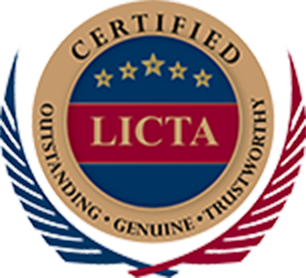Income of Settlement is Deemed to be Income of the Settlor (Malaysia Tax Guide 2025)
Under Malaysia’s Income Tax Act 1967 (Section 65), income of a settlement is deemed to be income of the settlor in certain cases. This provision ensures that individuals cannot avoid taxation by transferring assets or income to others under a settlement.
1. Settlement for an Unmarried Relative Under 21
Income arising from a settlement will be deemed the settlor’s income if all these conditions apply:
| Condition | Requirement |
| Relationship | Beneficiary is a “relative” of the settlor (e.g. child, grandchild, sibling, uncle, aunt, nephew, niece, cousin). |
| Age | The relative is under 21 years old at the start of the basis period. |
| Marital Status | The relative is unmarried. |
| Timing | The income is derived during the settlor’s lifetime under the settlement terms. |
Exceptions (when s.65(1) does not apply):
- Relative is married before 1 January of the YA.
- Relative has attained 21 years old.
- Beneficiary is not a “relative”.
- Settlor has passed away.
2. Revocable Settlements
When a settlement includes a power to revoke, the income is deemed the settlor’s income.
(a) General Power to Revoke
If the settlor can revoke the settlement—immediately or in the future—the transferred assets or income are treated as their own.
(b) With or Without Consent
Whether revocation requires another person’s consent or not, the settlor’s power to determine or terminate the arrangement leads to the same effect.
(c) Deemed Income Treatment
Where a revocation right exists, any income generated under the settlement is treated as settlor’s income and subject to combined assessment under Section 45(2) (aggregated spouse assessment).
3. Income Used by Settlor Who Controls the Settlement
If the settlor, a relative, or a controlled company uses any income or accumulated income from the settlement for their own purpose (e.g., by borrowing it), the amount used is deemed settlor’s income.
If the actual beneficiary has already paid tax on that income, a tax repayment will be made to the beneficiary.
4. Settlements Creating a Trust
When a settlement creates a trust, and income is transferred to the trust body, the income received by beneficiaries is deemed settlor’s income.
However, if the trust incurs a business loss, the settlor cannot claim that loss as a deduction.
Statutory Income Treatment
- Income of the trust body = deemed income of the settlor.
- Source of income is treated as directed by the DGIR.
5. Settlement Without a Trust
If no trust is created, the income of the settlor equals what would have been the beneficiary’s statutory income from the settlement property, or as determined by the DGIR.
6. Two or More Settlors
If a settlement has multiple settlors, each settlor is taxed only on the portion of income proportional to their own contribution of assets or income sources into the settlement.
7. Settlement Made to a Minor
A minor (below 18) may still be taxable if they receive income from a settlement. The assessment may be made on the minor, their parent/guardian, or an appointed agent under DGIR’s direction.
When income is transferred to a child through a trust, it becomes the settlor’s income if the child is below 21 and unmarried at the start of the basis year [s.65(1)].
Key Takeaways
- Income of a settlement may still be assessed on the settlor under Section 65.
- Applies to unmarried relatives under 21 and revocable settlements.
- Using settlement income personally can trigger deeming rules.
- Business losses in trusts are not transferable to settlor.
- Always review settlement terms to avoid unintended tax exposure.
ANC Group – Your Personal Tax Advisor
Tax consulting is the core service of ANC Group. Our tax professionals provide clients with comprehensive tax support and guidance. We offer tax consulting and compliance services for expatriates, entrepreneurs, and listed and non-listed companies.
Our tax consulting services include business tax, transaction tax, personal tax, and corporate income tax. We don’t just guide you in interpreting and applying complicated taxation rules, but to explore new opportunities and business trends.
ANC Group keep you abreast with Malaysia tax updates and any changes in the local regulations.
We work closely with industry specialists, authorities, and associated professionals within ANC Group to provide the best-in-class integrated tax planning solutions. ANC specialists coordinate the accounting and taxation services to bring your business to success.
If you need professional tax advisory services regarding the Malaysia Income Tax Act 1967, our team is ready to assist you. Contact us here to discuss how we can support your business.










